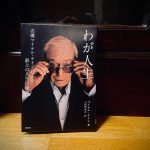“Where do you live?”を使わずに情報を聞き出す質問
“Where do you live?”を使わずに情報を聞き出す質問
 120404.mp3 (4分47秒)
120404.mp3 (4分47秒)
イギリス出身のリチャード先生(聖蹟桜ヶ丘)にお話しをお聞きしました。英語を話すときにはストレートな表現を使わなければならない、と考えているとしたら、その誤解が英語の上達を妨げてるのかもしれません。
「英語はストレートな言語」という日本人の誤解が、ネイティブ・スピカーの方にとってこんな不自然な現象を生んでいるようです。リチャード先生が日本に来たばかりの頃の体験を紹介してくれました。
Sometimes Japanese confuse English as being a language where you can ask direct questions.
And this sometimes makes problems, because in England, English English is very similar to Japanese.
There are a lot of ways of expressing things, or avoiding expressing opinions or ideas by using vague words or saying nothing or changing the topic.
OK, I can give you an example of this in Japan.
When I first came to Japan sometimes, sometimes I would go to a Aka-chouchin, or a small bar, to eat Yakitori and drink some beer.
And then somebody sitting next to me, an another customer would maybe speak a little English, and then always would ask me the same set of questions on that would be “where are you from?”, “how old are you?”, “are you married?”,“where do you live?”.
And I used to say, “Oh, are you a policeman?.
Because you want to ask me so many questions, right?”.
And so I sometimes am doing English class on this particular theme, “how can we get information without asking direct questions?”.
For a example, instead of asking “where do you live?”, which it requires information.
And if I just met you in the restaurant, I don’t know if you are a good guy or maybe a bad guy.
So I don’t want to tell you my address where I live.
So if you say, “where do you live?”, people will avoid giving you an answer.
So what is a better question? Well, you could say, “oh, do you live nearby?”.
Then a person can say, “yes” or “no”.
And if they like, they have an option.
They can say, “yes, I live next to the post office.” or “I live near the police station”.
So there is a kind of opportunity to just say yes or no, or add something on.
■出演
・ETCマンツーマン英会話のリチャード先生
■聞き手
・青樹洋文
………


















